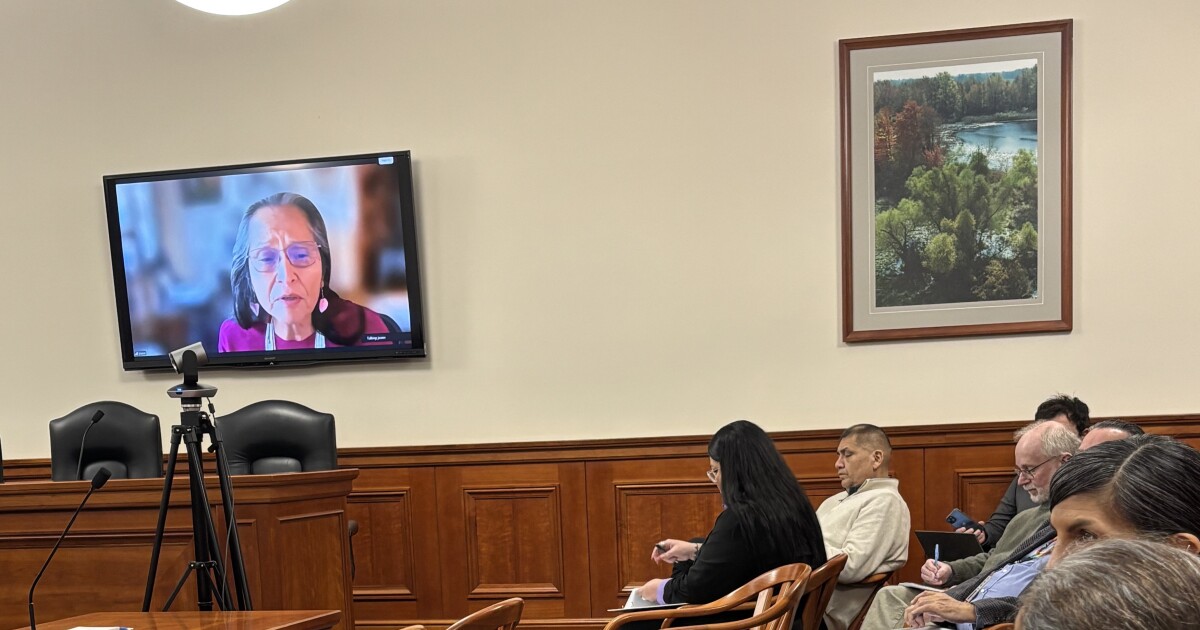This story was reported by and originally published by APM Reports in connection with its podcast Sold a Story: How Teach Kids to Read Went So Wrong.
After Donald Trump was elected in November, most employees at the U.S. Department of Education felt secure in their positions. Having experienced a Trump presidency before, they anticipated little change, viewing their work as legally mandated and nonpartisan, and thus protected from political shifts.
This changed in February when the Department of Government Efficiency, led by billionaire CEO Elon Musk and known by its acronym DOGE, dramatically restructured the Department of Education’s Institute of Education Sciences. DOGE’s actions were announced on X, aiming to eliminate “waste, fraud and abuse.”
DOGE is looking for help from the general public!
Please DM insight for reducing waste, fraud, and abuse, along with any helpful insights or awesome ideas, to the relevant DOGE affiliates (found on the Affiliates tab). For example, @DOGE_USDA, @DOGE_SSA, etc.
We will add…— Department of Government Efficiency (@DOGE) February 17, 2025
A post from the Department of Government Efficiency.
DOGE slashed $900 million in research contracts and laid off over 90 percent of the workforce. According to APM Reports, the contracts’ actual value was closer to $820 million, with actual savings less due to prior expenditures.
Among those dismissed were staff working on the National Assessment of Educational Progress (NAEP), a critical federal education initiative valued by the Trump administration. These assessments test over 10,000 students nationwide in subjects like reading and math, allowing for comparison across states.
Education Secretary Linda McMahon emphasized the assessment’s importance at a summit, saying, “If we don’t, states can be a little manipulative with their own results and their own testing. I think it’s a way that we keep everybody honest.”
Experts fear the quality of these tests will decline due to staffing cuts. Sean Reardon from Stanford University noted the absence of psychometricians, essential for ensuring fair and accurate assessments.
Mark Seidenberg, a reading researcher, warned that an unreliable test would erode public trust, likening it to undermining the assessment itself. The Department of Education maintains that it aims to uphold NAEP’s high standards.
The National Assessment Governing Board stated it temporarily assigned staff with expertise to the National Center for Education Statistics. Harvard professor Andrew Ho expressed concerns about the reduced staff’s ability to prevent errors.
Due to cutbacks, the release of some test data has been postponed. Results for 8th-grade science, 12th-grade math, and reading were delayed until September. The board voted to eliminate more than a dozen tests by 2030, seeking cost efficiency and avoiding election year releases.
Board chair Bev Perdue stated, “Today’s actions reflect what assessments the Governing Board believes are most valuable to stakeholders and can be best assessed by NAEP at this time, given the imperative for cost efficiencies.”
Maintaining NAEP costs about $190 million annually, a small portion of the department’s $195 billion budget. Adam Gamoran, president of the William T. Grant Foundation, stressed the need for experienced staff to oversee the test’s implementation.
Gamoran noted, “The fact that NCES now only has three employees indicates that they can’t possibly implement NAEP at a high level of quality, because they lack the in-house expertise to oversee that work. So that is deeply troubling.”
The drastic changes were more severe than anticipated. A former employee, fearing retaliation, described it as “the utter destruction of this national resource of data.”
State tests vary greatly, making national comparisons difficult. Reardon called NAEP the “Rosetta stone” for linking disparate tests across states.
Reardon’s team at Stanford combines federal and state test data in the Educational Opportunity Project, providing insights into school performance, especially for low-income students. This data informs decisions from school boards to the U.S. military.
If data quality declines, making informed educational decisions will be challenging. Reardon expressed concerns about relying on inadequate information for educational improvements.
Seidenberg emphasized the importance of reliable data, warning that poor-quality tests would be nearly as detrimental as having no data at all.
The Hechinger Report provides in-depth, fact-based, unbiased reporting on education that is free to all readers. But that doesn’t mean it’s free to produce. Our work keeps educators and the public informed about pressing issues at schools and on campuses throughout the country. We tell the whole story, even when the details are inconvenient. Help us keep doing that.
“`
—
Read More Kitchen Table News










